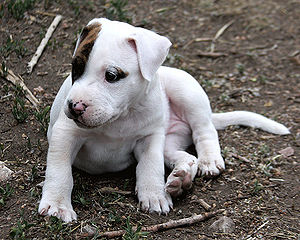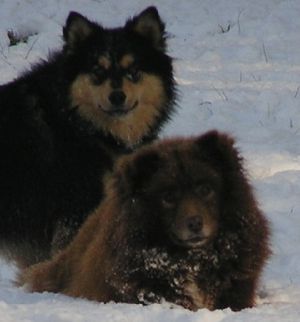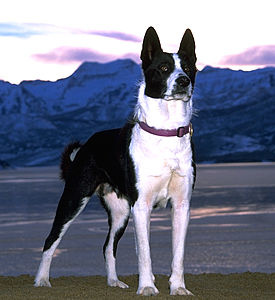|
|
| Vital Statistics: |
| Place of Origin: Portugal |
| Group: Sighthound, Scenthound |
| Height: large 21-22 in., medium 15-21 in., small 7-12 in. |
| Weight: large 66 lbs., medium 35-44 lbs., small 8-11 lbs. |
| Life span: 12-15 yrs. |
| Trainability: moderate |
| Good with children: yes |
| Good with other pets: usually but some are dog aggressive & chase other animals |
- What is the origin of the Portuguese Podengo?
It may be that 11th century Phoenicians brought the Podengo to the Iberian Peninsula or even the 8th century Moors or it could have ben the Romans who brought them to Iberia.When Columbus sailed to the New World, he might have had the Podengo on board as they made excellent ratters on sailing ships. However they arrived at their destinations, they were highly regarded and became Portual’s National Dog.
- What does the Portuguese Podengo look like?
There are 3 types of Podengo, small, medium and large. The coat can be either smooth or wire-haired. The large Podengos are 21-22 inches tall and weigh 66 lbs.; the medium is 15-21 inches tall and weighs 35-44 lbs; the small one is 7-11 inches tall and weighs 8-11 lbs. Ears are erect. Both types of coats shed very little and there is no undercoat. Colors are yellow, fawn or black, sometimes with white markings.
- What is the temperament of the Portuguese Podengo?
Podengos are hardy dogs, highly intelligent and easily trained. They get along well with children and other animals but should have early socialization. Because they train well, they’ve appeared in several Hollywood movies. Podengos have lively, friendly personalities and require lots of exercise. They love to go hiking and will check to make sure their human is following.
- What is the Portuguese Podengo used for?
The large Podengo hunts boar and deer. The medium and small ones hunt rabbit and rats. Large Podengos are good at guarding. They like to dig and are high jumpers so a tall, secure fence is necessary. Podengos are lively, loving companions.
Possible Health Issues
No specific known health issues related to the breed at present.



